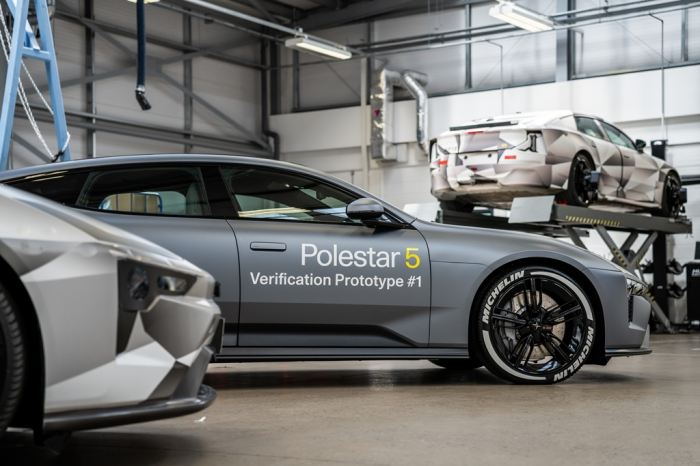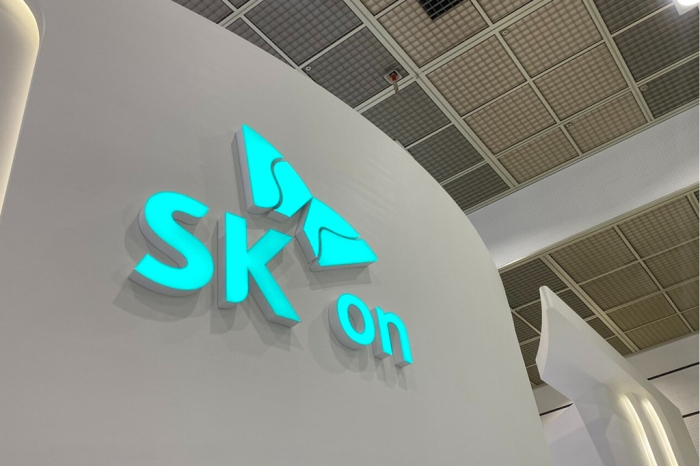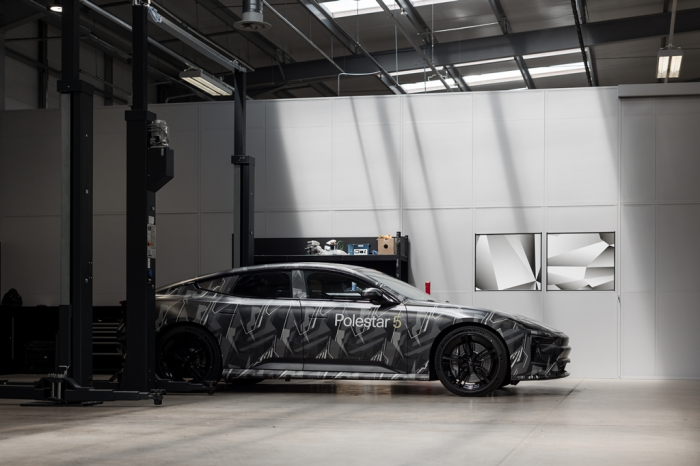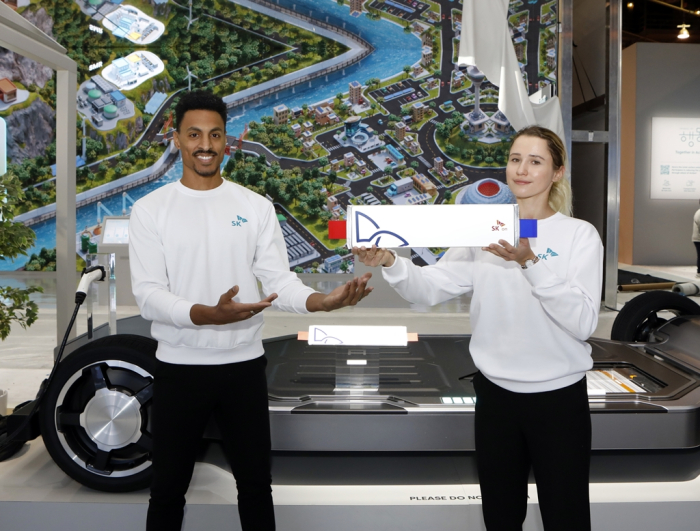SK On signs deal to supply NCM battery cells to Sweden’s Polestar 5 EV
The deal, SK’s first battery supply deal with the Swedish EV maker, strengthens its global expansion push
By Nov 06, 2023 (Gmt+09:00)
LG Chem to sell water filter business to Glenwood PE for $692 million


KT&G eyes overseas M&A after rejecting activist fund's offer


Kyobo Life poised to buy Japan’s SBI Group-owned savings bank


StockX in merger talks with Naver’s online reseller Kream


Meritz backs half of ex-manager’s $210 mn hedge fund



SK On Co., the battery-making affiliate of South Korea’s SK Group, has signed a deal to supply nickel-cobalt-manganese (NCM) battery cell modules to Sweden’s Polestar for its upcoming Polestar 5 electric vehicles.
SK On said on Monday that the deal marks its first supply of high-end NCM battery cells to the Swedish EV maker.
Polestar has so far received battery cells from Korea’s LG Energy Solution Ltd. and China’s Contemporary Amperex Technology Co. Ltd., more commonly known as CATL.
Neither SK nor Polestar has disclosed the deal’s value and supply volumes.
“We are delighted to collaborate with Polestar on its top-tier EV model,” said SK On Chief Executive Jee Dong-seob. “We will solidify our partnership with Polestar and create new opportunities through this agreement.”

SK said the deal indicates that NCM batteries, more expensive but boasting higher energy density than lithium iron phosphate (LFP) batteries, are favored for premium EVs.
LFP batteries have been mainly produced by Chinese companies such as CATL, the world’s top battery maker, and BYD while Korean battery makers have been concentrating on NCM cells.
However, demand for LFP cells is growing amid rising battery raw material prices and electric car makers’ recent penchant for low-end models.
POLESTAR 5 TO ROLL OUT IN 2025
Polestar is an EV manufacturer under Volvo Cars and boasts a higher market share than Tesla Inc. in the same model range in some Scandinavian countries.

SK On, a unit of Korea’s top energy company SK Innovation Co., said its NCM battery cell modules will be installed on the Polestar 5, the Swedish firm’s luxury four-door grand tourer (GT) model, set to roll out in 2025.
With a maximum power of 650 kW, or 884 horsepower, and 900 Newton meter (Nm) torque, the Polestar 5 will be built on the Swedish firm’s bespoke bonded aluminum platform developed at its UK research and development center.
The battery cells to be used in the Polestar 5 are extra-long, measuring 56 cm, and are deemed high nickel, meaning a nickel content of over 80%. With higher silicon content in the anode, the negative end of a lithium-ion battery, such batteries show increased charging performance and energy density, SK said.
SAFETY, KEY ADVANTAGE
The Korean battery maker said another key advantage of its NCM batteries is their excellent results in safety tests.

SK said its batteries demonstrate superb safety, passing stringent thermal propagation (TP) tests. The company has improved its batteries’ cooling performance by directly applying cooling plates to the module to control battery heat, it said.
SK On counts Ford, Volkswagen and Hyundai Motor Co. as its major battery clients.
“Our relationship with SK On has been fruitful following our initial MOU and their investment in our brand. Polestar 5 is developing at pace and will feature this high-capacity battery to provide the performance expected of our grand tourer,” said Thomas Ingenlath, CEO of Polestar.
In 2021, SK Group invested about $60 million in Polestar through the New Mobility Fund jointly established with Chinese automaker Geely.
SK said its investment in Polestar marks its first step in the two companies' strategic partnership in the eco-friendly mobility sector.
Write to Sungsu Bae at baebae@hankyung.com
In-Soo Nam edited this article.
-

-
 BatteriesSK On unveils new material to improve EV battery capacity
BatteriesSK On unveils new material to improve EV battery capacityAug 31, 2023 (Gmt+09:00)
2 Min read -
 BatteriesEcoPro BM, SK On, Ford to invest $886 mn to build cathode plant in Canada
BatteriesEcoPro BM, SK On, Ford to invest $886 mn to build cathode plant in CanadaAug 18, 2023 (Gmt+09:00)
4 Min read -
 Electric vehiclesPolestar 3 to light up roads with headlamps of LG’s ZKW
Electric vehiclesPolestar 3 to light up roads with headlamps of LG’s ZKWJun 08, 2023 (Gmt+09:00)
2 Min read -
 BatteriesSK On to spend $352 million to mass produce solid-state batteries by 2028
BatteriesSK On to spend $352 million to mass produce solid-state batteries by 2028Apr 24, 2023 (Gmt+09:00)
2 Min read -
 BatteriesSK On, EcoPro, China’s GEM to build battery materials plant in Indonesia
BatteriesSK On, EcoPro, China’s GEM to build battery materials plant in IndonesiaNov 25, 2022 (Gmt+09:00)
1 Min read -
 BatteriesSK On in 10-year lithium deal with Australia’s Lake Resources
BatteriesSK On in 10-year lithium deal with Australia’s Lake ResourcesOct 12, 2022 (Gmt+09:00)
2 Min read -
 BatteriesFord CEO heads to Korea to discuss EV tax credit with LG Energy, SK On
BatteriesFord CEO heads to Korea to discuss EV tax credit with LG Energy, SK OnSep 16, 2022 (Gmt+09:00)
3 Min read


